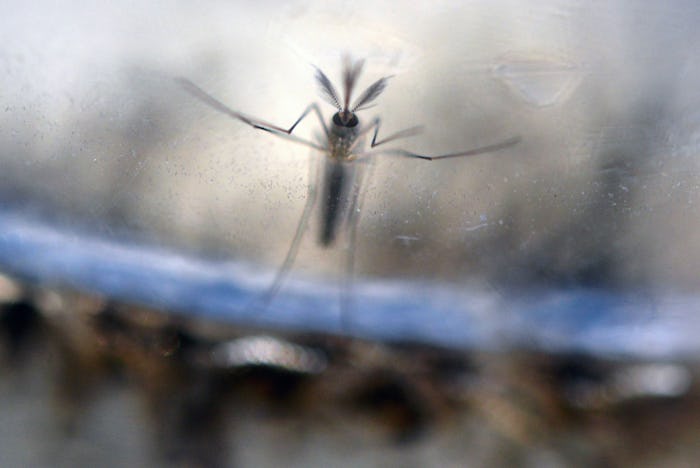Life

Where Do Zika Mosquitos Lay Their Eggs? Be On The Lookout This Summer
There isn't much that to hate about the summer. The weather is beautiful and it is the prime time for me to venture outside and explore. However, there is one thing to dislike about the summertime — mosquito bites. They itch, they're painful, and they can come with some serious consequences (hello, Zika!). Which is why it is necessary to take extra measures when it comes to mosquitos this summer and ask questions like, how can I prevent Zika? More specifically, where do Zika mosquitos lay their eggs?
The results are a little bit daunting and kind of scary — according to the Centers for Disease Control and Prevention, the eggs of the Zika mosquito are quite resilient. But before that, a lesson in science: What is the Zika mosquito and what does it look like? The specific mosquito that carries Zika is scientifically known as the Aedes aegypti mosquito. The Aedes aegypti mosquito is an insect that loves warm, tropical climates (even though it has been spotted in the United States) and is an aggressive biter. The Aedes aegypti are also the primary mosquito carriers of Dengue, a disease that is caused by the Dengue virus and transported through infected mosquitos.
Perhaps the biggest fact to know about the Aedes aegypti mosquito is that it loves to lay its eggs in standing water and it can do it pretty much anywhere.
According to the CDC, the female mosquito lays her eggs on the sides of containers filled with water and the eggs can hatch into larvae after a rain or flooding. Therefore, not only do humans provide a way to feed, they can also provide a necessary home for infected mosquitos to lay their eggs. Mosquitos can lay up to 100 eggs at a time in these containers which vary in size and purpose.
The Zika mosquitos can lay their eggs in rain filled holes trees, toys left in the yard, plastic pools, rain barrels, even flower pots. It doesn't have to be a lot of water, either. A coffee mug left outside or a small bird bath could attract a mosquito to lay its eggs. Basically, if something can store a bit of rain after a rain storm, a Zika mosquito can lay its eggs there.
And the eggs are resilient, too. The eggs will stick to the walls of the containers like glue and can survive drying out for eight months — which sounds incredibly scary. In order to prevent precious lawn ornaments from being a nest for mosquito eggs to hatch, make sure to drain any accumulated rain around the yard. It is also recommended to wash, rinse, and scrub suspected homes of mosquito larvae with a brush to remove the eggs.
Zika mosquitos are a fear this summer, but there are things that can be done at the home to prevent them from spreading. Also, keep in mind that there have not been any reported cases of Zika being transmitted from mosquitos in the United States — only cases of people in the United States bringing the disease back from being abroad. But it is still necessary to take extra precaution this summer when dealing with Zika and mosquitos.